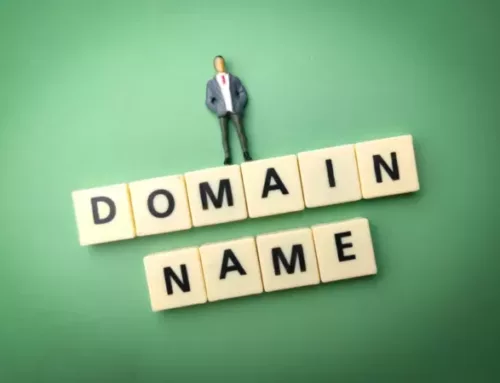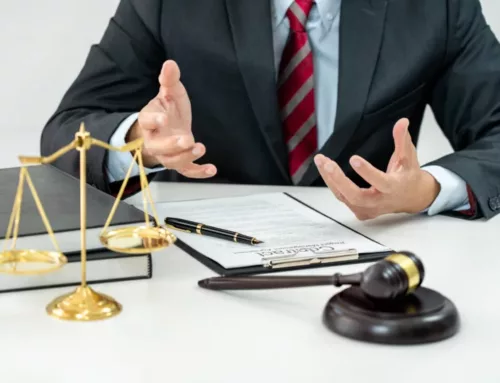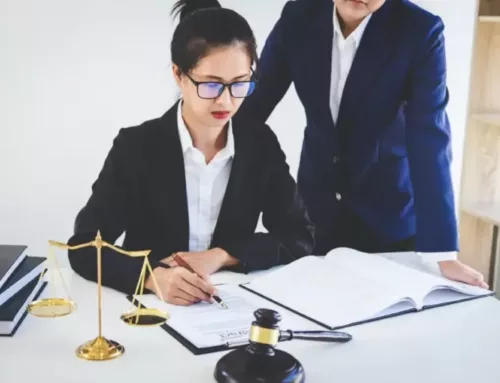Understand copyright infringement and its consequences
As we navigate the current digital age, one question looms large in the minds of many: “Is copyright infringement criminal?” Copyright laws are essential in protecting the creative works of individuals and organizations. But when does infringing on these laws shift from civil to criminal liability? Understanding the distinctions is crucial in today’s content-driven world.
At War IP Law, located in the heart of Washington, DC, we believe in making complex legal issues simple and understandable. Our Intellectual Property law firm is well-equipped to help you navigate the intricacies of copyright law and its potential implications.
Don’t let concerns about copyright infringement leave you feeling overwhelmed. Reach out to our Washington, DC, IP attorney today. Let our dedicated team guide you through these critical legal issues, putting your mind at ease.
What is Copyright Infringement?
In the bustling city of Washington, DC, where innovation and creativity run high, understanding the meaning of copyright infringement is crucial. Copyright infringement refers to using copyrighted work without the express permission of the rightful owner, thereby violating their exclusive rights. That could be anything from music, movies, books, software, architectural designs, etc.
Copyright laws, established under the US Constitution, are designed to foster and protect these creative endeavors. By granting exclusive rights to creators, they’re encouraged to produce works that contribute to cultural, scientific, and intellectual advancement. But when someone oversteps these boundaries, they infringe on these rights, potentially leading to serious legal consequences.
Can copyright infringement be criminal? It’s a question that warrants careful consideration. While some cases may be purely civil, it could become a criminal matter under certain circumstances.
Navigating the complex waters of copyright law isn’t something you should tackle alone. Our Washington, DC-based legal team is ready to help you understand and manage these concerns at War IP Law. Don’t hesitate to reach out. Let us assist you in protecting your creative rights or addressing any accusations of copyright infringement.
What Copyright Infringement Laws Should I Know About?
Answering the question, “Is copyright infringement criminal?” requires getting to grips with some key pieces of legislation.
- The Copyright Act of 1976: This is the foundational US law that defines the exclusive rights of copyright owners. These rights include reproducing, distributing, performing, and displaying copyrighted work and creating derivative works.
- The Digital Millennium Copyright Act (DMCA) of 1998: This law added new protections for copyright in the digital age, including addressing issues around the unauthorized sharing of copyrighted material online.
- The No Electronic Theft (NET) Act of 1997: This act, which is an important update to copyright law, allows criminal charges to be brought against individuals who knowingly infringe copyright, even if they derive no financial profit from their actions.
Navigating these laws can seem daunting, but they’re crucial when dealing with potential copyright infringement. At War IP Law, we’re committed to helping you understand and navigate these complexities. Based in the heart of Washington, DC, we’re here to assist you. Don’t hesitate to reach out to us for more information or guidance.
What are the Common Types of Copyright Infringement in Washington, DC?
As the creative pulse of Washington, DC, continues to thrive, it’s critical to understand the various forms of copyright infringement that can occur. Whether it’s a downloaded eBook or an image used for a social media post, these actions could lead to infringement. Here’s a closer look at some of the common instances you may encounter:
- Unlawful File Sharing: This involves sharing copyrighted materials such as music, movies, or software over the Internet without the necessary permissions.
- Illegal Downloads: Downloading copyrighted materials like music tracks, eBooks, or software programs without proper authorization can lead to copyright infringement.
- Improper Use of Images: Unknowingly, many may infringe copyright laws by using images without obtaining the required license from the owner. That can occur across various platforms, from websites to promotional materials and social media.
- Plagiarism: This involves presenting someone else’s work as your own, whether it’s in academic papers, blog posts, or books.
- Unauthorized Derivative Works: Creating a new work by modifying a copyrighted one without the necessary permissions can also constitute copyright infringement.
Navigating these scenarios in Washington, DC, may seem challenging. But rest assured, War IP Law is equipped to provide the guidance you need to understand and address these potential issues. Please feel free to reach out to us for legal support and advice.
Is Copyright Infringement a Civil or Criminal Offense?
In the United States, copyright infringement can be classified as either a civil or a criminal offense, each with its distinct characteristics.
When we talk about civil offenses, it often involves an individual or organization using copyrighted material without authorization which causes economic harm to the rights holder. In such cases, the injured party can sue for damages to compensate for the financial losses experienced. The burden to demonstrate that the unauthorized use occurred and caused economic damage lies with the rightsholder.
In contrast, copyright infringement becomes a criminal offense when intentional, large-scale infaction is executed for commercial advantage or personal financial gain. Federal authorities may initiate prosecutions in these instances. Demonstrating the willful nature of the infringement is crucial in such cases, raising the bar for the burden of proof.
Understanding the nuances between civil and criminal offenses in copyright infringement can be complex, especially in a bustling, creative city like Washington, DC. At War IP Law, we are well-equipped to provide you with the insights you need. Contact us for professional advice whenever you need it.
What Factors Influence the Federal Government’s Decision to Bring Criminal Charges?
The decision to criminally prosecute copyright infringement at the federal level typically hinges on several key factors. It’s not a step taken lightly, given the higher burden of proof and the serious penalties involved. Here are some of the considerations:
Scale of Infringement
Generally, the infringement must be on a significant scale. The number of copyrighted works infringed upon and the scope and duration of the infringement come into play here.
Willful Infringement
The infringement must be willful – the infringer must have knowingly violated copyright law. That is often harder to prove than mere infringement.
Financial Gain
The infringement must have been committed for commercial advantage or personal financial gain. Those could include selling pirated copies of a work, operating a paid streaming service using pirated content, etc.
Impact on the Owner
Another consideration is the degree of harm suffered by the copyright owner. That could include both financial loss and damage to the owner’s ability to profit from their work in the future.
Given the seriousness of such decisions, it’s essential to have reliable legal guidance when facing potential copyright infringement issues. At War IP Law, we stand ready to assist you in understanding these matters and determining the best path forward. Call us if you need help navigating the complexities of copyright law.
What are the Consequences of Criminal Copyright Infringement?
The consequences of criminal copyright infringement in the United States can be severe. While specific penalties may vary based on the case’s details, they typically involve substantial fines and, in some cases, imprisonment. Here’s a general idea of what someone found guilty of criminal copyright infringement might face:
- Fines: Individuals convicted of criminal copyright infringement can face significant fines. Depending on the scale and nature of the infraction, these fines can range from a few thousand to several million dollars.
- Imprisonment: More serious cases of copyright infringement can also lead to imprisonment. The duration of the prison term can vary based on the extent of the infringement and the specific statute under which the person is prosecuted.
- Seizure and Forfeiture: In certain cases, law enforcement may seize and forfeit any goods produced from copyright infringement. Those could include counterfeit DVDs, illegal copies of software, or hardware used to facilitate the infraction.
- Restitution: In some cases, the court may order the infringer to pay restitution to the copyright owner, effectively compensating them for the losses incurred due to the infringement.
These serious consequences should highlight the importance of understanding copyright law, especially in creative hubs like Washington, DC. If you are entangled in a copyright issue or want to ensure you’re on the right side of the law, War IP Law is here to provide professional assistance. Don’t hesitate to contact us for guidance and support.
Secure Your Creative Future with War IP Law
Understandably, the question “Is copyright infringement criminal?” can be difficult to answer. In places like Washington, DC, where creative activity is buzzing, knowing the nuances of copyright law is imperative.
At War IP Law, we are prepared to assist you not only with matters of copyright but also with a broad array of services. Whether your concern involves intellectual property, trademarks, patents, or trade secrets, we will guide you through these complex legal territories confidently.
Don’t let doubts about copyright law impede your creative flow or muddle the protection of your intellectual materials. Connect with War IP Law today. Our IP attorney in Washington, DC, is ready to provide the professional guidance to foster and shield your innovative ventures.






